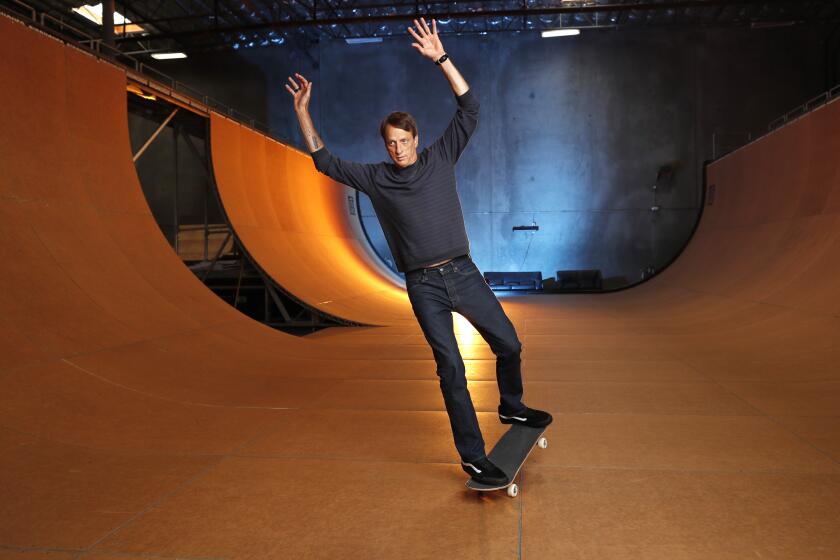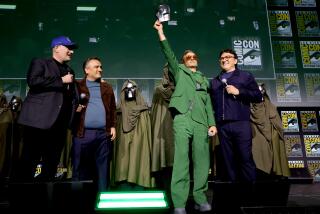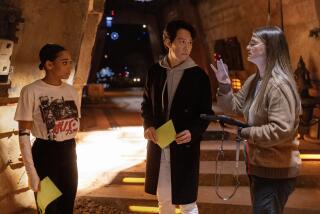The star of the ‘Marvel’s Avengers’ game is a Muslim Pakistani teenager, a.k.a. Ms. Marvel
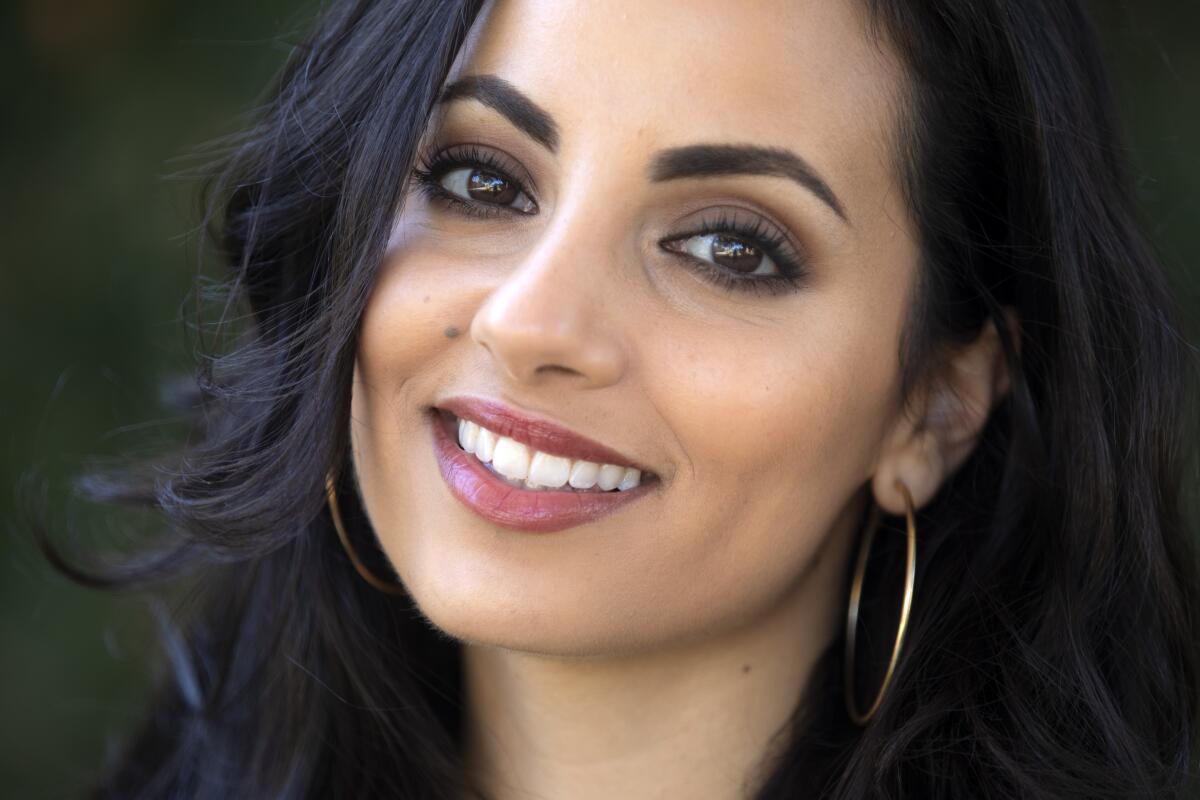
Before Sandra Saad was a superhero in a major Marvel property, the actress found herself in an unfortunate, potentially career-killing position for a young performer. She had to turn down acting opportunities.
It’s crucial, says Saad, a first-generation Egyptian American, to take on characters that don’t fall into Middle Eastern stereotypes. But the pitfalls of certain roles aren’t always immediately apparent. While she speaks Arabic, her reading skills of the language are hit-and-miss, which means she could miss the nuances of certain lines of dialogue. This is why she runs potential roles by an authority higher than any agent, casting director or Hollywood advisor: her mother.
“Sometimes I get these scripts that are just dangerous to play,” says Saad, who has a starring role in Square Enix’s take on the game “Marvel’s Avengers,” out this week.
“They would make me say things that are just horrible,” Saad continues. “Sometimes I need to ask my mom what it says, and one day she started tearing up. She said, ‘Please don’t do this to yourself. Please don’t do this to our people.’ A lot of these roles are political. ‘OK, thank you. I’m not doing it.’”
There are, of course, modern-life realities, such as paying bills. But Saad, who was spending the bulk of her time behind the scenes as a makeup artist, saw some compromises as too great.
“I have a lot of Arab friends, and a lot of stuff they go out for is harmful — wife of terrorist,” she says. “I have been told multiple times by a lot of agents that that’s all I’m going to go out for because that’s all I am. I don’t want to tell that story. I don’t want to do that to my people. So I told myself a while back that I would rather not ruin my career that way, and make myself look bad and make my people look bad, to just book a couple hundred dollar job. It’s not worth it to have that trash on my résumé.”
The strong-willed patience paid off.
Saad in her first large role is the voice and personality behind the superhero known as Ms. Marvel in “Marvel’s Avengers,” the alter-ego of Kamala Khan, a Muslim Pakistani American teenager from Jersey City. Khan hasn’t yet made her debut in the Marvel Cinematic Universe — Disney and Marvel announced last year that a “Ms. Marvel” series would be coming eventually on Disney+. Thus, Saad’s performance and Square Enix’s interpretation will be the first major cultural appearance by the character outside of the comics.
“I am very similar to her — the struggles of being a first-generation American and growing up as a young brown teenager who doesn’t necessarily fit in and is a little awkward,” Saad says.
“This is a good role,” she adds. “I’m hopeful that I can continue playing a character who doesn’t play into a negative stereotype, a character who embraces the background. Kamala is Pakistani, Kamala is Muslim. But the game isn’t about her religion because that’s not what life is.”
Advance promotion for the game largely focused on its multiplayer capabilities rather than the singer-player narrative, itself a hefty 10-plus-hour story that stands separate from the Marvel world on film and in the comics. And when it did promote characters, Square Enix centered most of the attention on more recognizable heroes such as Iron Man and Black Widow. Yet all that hype was not only burying the lead but obscuring what makes the game feel as vibrant as it does: The star of the “Marvel’s Avengers” story is Khan. The character is the backbone of a narrative in which the Jersey teen uncovers a conspiracy that saw the Avengers ostracized.
The game, available for the Xbox One, PlayStation 4 and home computers, is all the better for it. While “Marvel’s Avengers” wants to deliver on the fantasy of landing a Hulk “smash” or levitating through battles as Iron Man, Khan’s character grounds the game, contrasting its more arcade-like and gamey aspects of leveling-up characters with a rather honest and thoughtful young adult story.
The coming Avengers Campus at Disney California Adventure will show how well Marvel’s superheroes play in the land Walt built.
When we first meet Khan at a Comic-Con-like event celebrating the heroes — one that will soon blow up and level part of San Francisco — she’s a teen wanting to create an “Avengers” comic. She’s also told, point-blank, by her peers that she has no part in an “Avengers” narrative. A charmingly goofy Thor (Travis Willingham) watches Khan stand her ground, and we’re introduced to a kid who is tired of hearing the word “no” and only becomes more bullheaded, more determined to find a place of optimism, because of it.
The game’s director, Shaun Escayg, says he knew that Saad should be the game’s Khan when watching her reactions between audition takes, picking up on a sense of surprise at her own abilities. “She did her read, and it was amazing,” Escayg says. “She sounded so bubbly and so fresh, but in-between takes, she was just, ‘Did I ... did I do that?’ You saw that behind the scenes she was a genuinely positive person. You can’t craft that. That just comes out of you.”
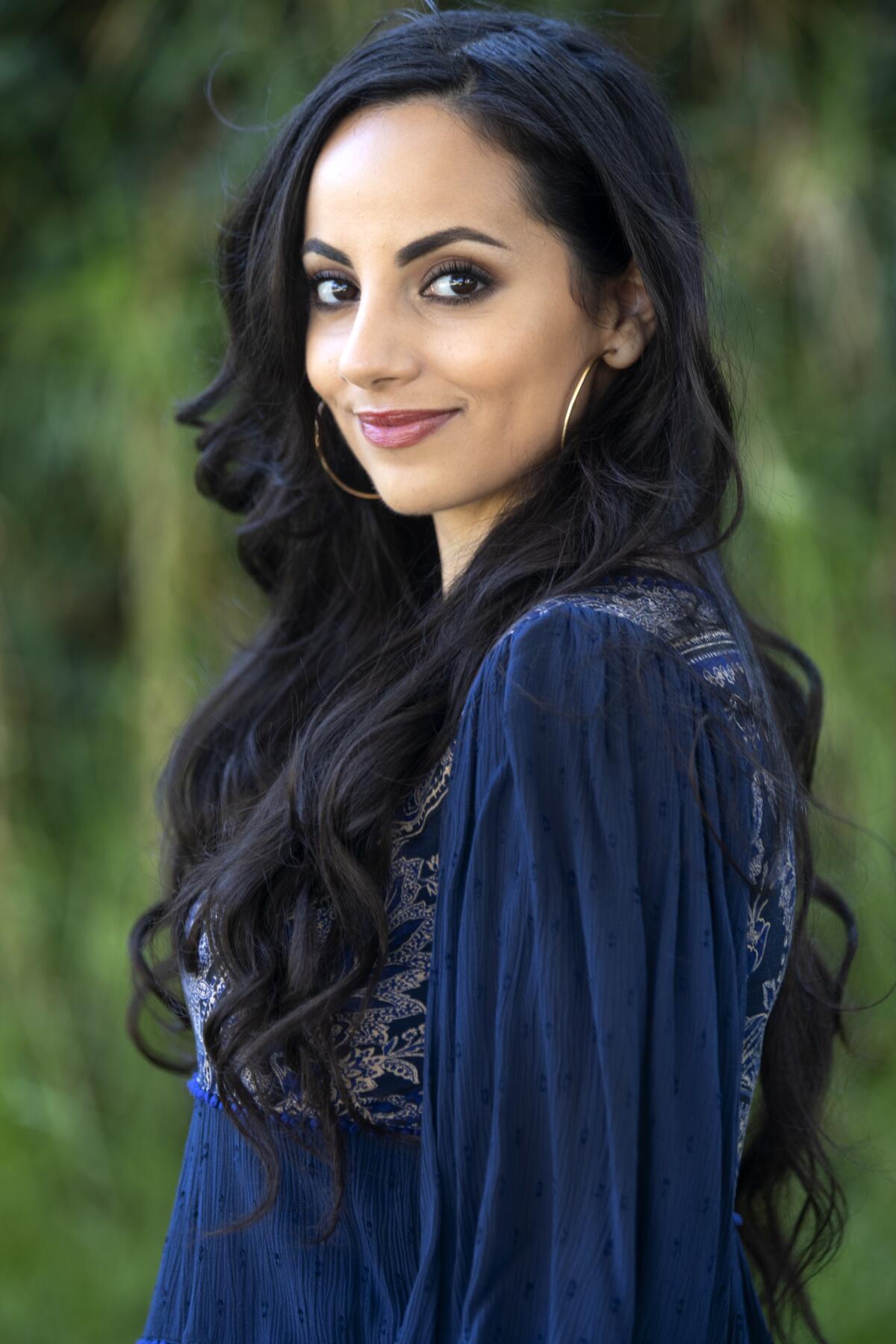
Khan in the game is also not embarrassed of her doting father, who is all-in on Khan’s obsession with American heroes — at least until they’re blamed for an event that discharges a chemical-like substance that unleashes Khan’s shape-shifting abilities. After that, he would much rather her be at a mosque retreat.
Such touches, which nod to the tension of wanting to embrace American ideals but also not lose one’s heritage, also appealed to Saad, who says her mother, desiring an American name for her daughter, named her Sandra after the Los Angeles nurse who delivered her.
While Saad wasn’t up on Marvel lore before the role, she says her excitement and pride for the character grew once she learned Khan’s history. “This character was created by someone who is almost a direct image of her,” says Saad, expressing admiration for Marvel exec and a driving force behind Ms. Marvel in Sana Amanat. “Sana is basically Kamala, a first-generation American Pakistani. That was really cool for me. Then I knew the writing wouldn’t be weird.”
You can’t blame her for being skeptical. Aside from seeing stereotyped Arabic interpretations on screen, she’s also had to serve as something of a cultural ambassador on certain sets. She recalls one scene from a small film that turned needlessly painful.
“I was in this film where I just needed to speak Arabic to my boyfriend on a date,” Saad says. “He was Iraqi. I’m Egyptian. We couldn’t understand each other. The director had no idea, and we had to translate the script ourselves, and we truly did not understand each other because we’re speaking different dialects. So there’s that thing — ‘Maybe I’m never going to be truly understood, ever.’ I didn’t have representation in media. But my family was very encouraging. ‘You’re in America! You can pursue acting!’ In Egypt, that would be a lot harder.”
The first few hours of the game give us a taste of the core Avengers available to play with at launch — more heroes will be released with future, downloadable updates — but the tone of the single-player campaign is entirely driven by Khan’s effervescent-yet-stubborn ambition. It’s her job to essentially get the band back together. Allowing the established heroes to interact with and learn from the younger Khan, whose stretch-like moves aren’t always as slick and allow for some more lighthearted play, creates a sense of discovery for all of the character’s abilities.
It also allows the game to go a little deeper than good-versus-evil battles. “Those things that we think we’re ashamed of are actually our strongest assets,” Escayg says of themes brought out by Ms. Marvel. “So to play that emotion in this story through a character also wrestling with it, we see how that struggle almost spreads in a positive way throughout the other Avengers. They see themselves in this teenager, so much so that they want to do good by her.”
A cultural nerve was struck when it was announced that “Tony Hawk ‘s Pro Skater 1 + 2” would be remastered. Hawk even renamed a trick for the game that instantly dominated social media talk.
Saad wishes she could have seen herself in a teenager like Khan when she was coming of age. Ms. Marvel has been in the Marvel universe for less than a decade, and Saad herself grew up on a diet of “Full House” reruns. She says she often watched Spanish television as a kid, even though she didn’t speak the language, because she “maybe looked more like” those characters.
When films, television or games star diverse characters, there’s a “weird pressure,” she says, that it must do well to persuade executives to continue greenlighting such roles, chatter of which has surrounded this month’s release of “Mulan” on Disney+. Yet she says having a character like Ms. Marvel would have been life-changing for her, an assertion that has been underscored this week with the outpouring of tributes in the wake of the sudden death of “Black Panther” star Chadwick Boseman.
“It would have made me realize it was possible to have this career a lot earlier,” she says “It would have given me a sense of peace and the idea that I belong in media. So if I was 11 or 12 and saw a Kamala Khan, I would be like, ‘We can be cool too. We can exist, and we can be cool.’ We just don’t believe it. We don’t believe it can happen. And now it’s happening.”
More to Read
The biggest entertainment stories
Get our big stories about Hollywood, film, television, music, arts, culture and more right in your inbox as soon as they publish.
You may occasionally receive promotional content from the Los Angeles Times.
